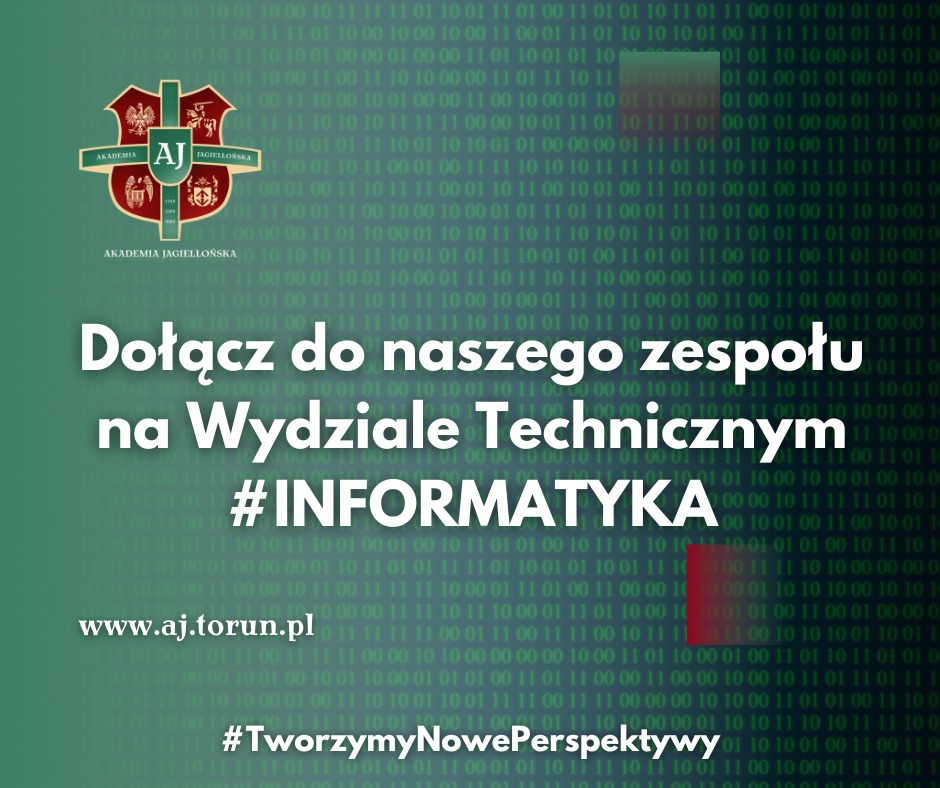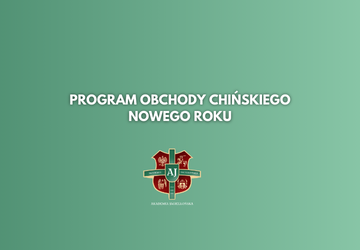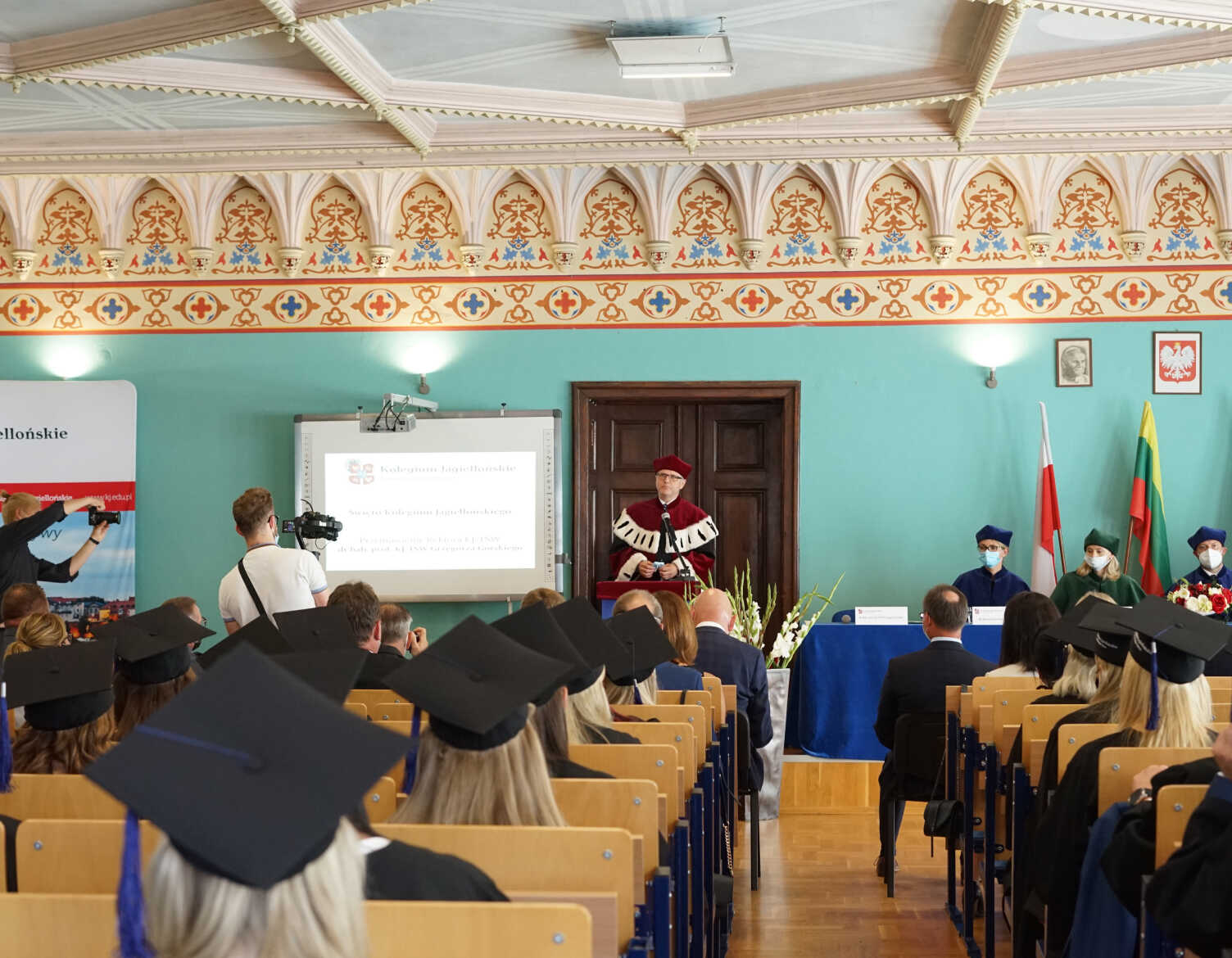AKADEMIA JAGIELLOŃSKA
Tworzymy nowe perspektywy
Akademia Jagiellońska w Toruniu to niepubliczna uczelnia w samym centrum toruńskiej starówki, oferująca najwyższą jakość kształcenia. Doświadczona kadra, połączenie teorii i praktyki oraz przyjazne warunki studiowania to tylko część z cech opisujących Tę uczelnię. Jesteśmy przekonani, że nasi studenci pójdą w ślady absolwentów i odniosą sukces w swoim dalszym życiu. Akademia Jagiellońska została stworzona po to, by zaoferować Wam wszystko co najlepsze.
Studia licencjackie
Studia magisterskie
Jednolite studia magisterskie
Studia inżynierskie
Studia podyplomowe
Studia MBA
AKADEMIA JAGIELLOŃSKA
Wydarzenia
PUBLIKACJE
Publikacje Akademii Jagiellońskiej
Zobacz więcej




